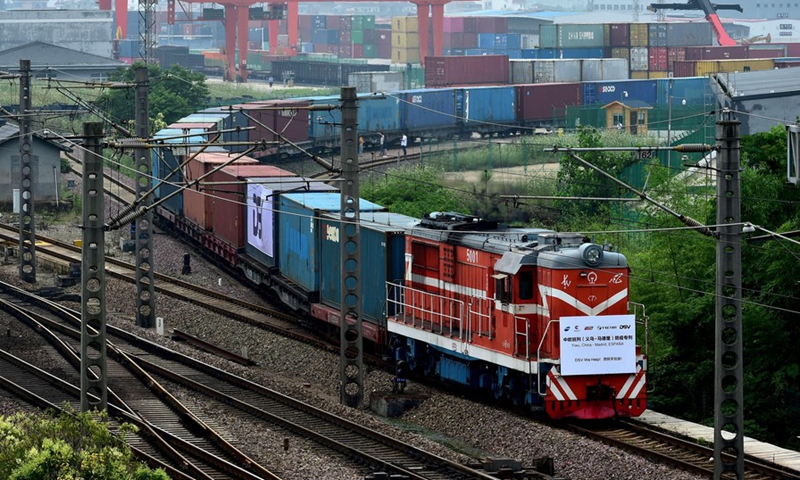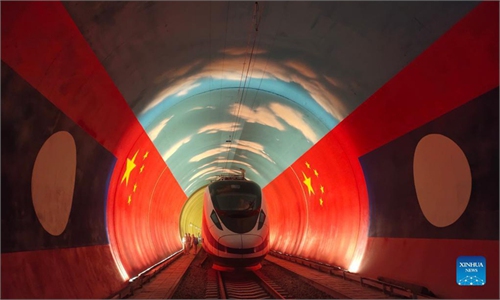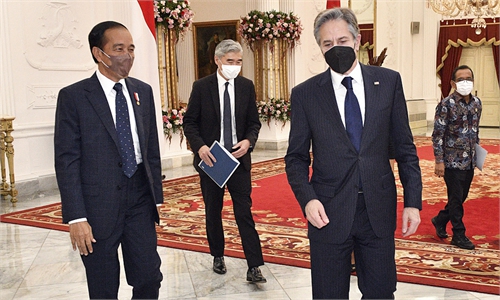China welcomes all proposals that will bring economic and social devt, improvement of local residents’ livelihoods in more countries: FM Wang Yi

A China-Europe freight train carrying medical supplies bound for Madrid of Spain departs from the city of Yiwu, east China's Zhejiang Province, June 5, 2020.Photo:Xinhua
The China-proposed Belt and Road Initiative (BRI) is a joint cause of all partners, and it is a development-driven, inclusive and green path that aims for mutual benefit, said Chinese State Councilor and Foreign Minister Wang Yi, noting that China welcomes and holds open attitude to all cooperation proposals that will bring benefits to each country's development and improvement of local residents' livelihoods.
Wang made the remarks while attending the 2021 meeting of the Advisory Council of the Belt and Road Forum for International Cooperation (BRF) via video link on Friday. This year marks the eighth anniversary of the BRI.
The past year has once again proved that progress of the BRI has not been stalled by the pandemic, but has become a hopeful way to enhance resilience and transmit confidence, Wang said.
In the first 10 months of the year, China's investment in BRI countries and regions has increased by 14.6 percent, and trade volume up 23 percent on a yearly basis, official data showed.
A total of 12,605 China-Europe freight trains had been launched during the period, transporting 1.216 million containers of twenty-foot equivalent unit, hitting record high, showing an increase of 26 percent and 33 percent respectively year-on-year and becoming a powerful "stability anchor" in the global supply chain.
"The BRI has never been a 'geographical strategy' but will help deliver the 2030 Agenda for Sustainable Development and drive shared progress and prosperity," Wang said.
"The BRI does not create 'debt trap,' but it is a road of opportunities for mutual benefit. It will also not damage the environment, but be a green road that facilitates low-carbon growth, environmental protection and climate response," the foreign minister stressed.
In face of the combined impacts of the pandemic and major changes unseen in a century, Wang noted that China hopes all partners would continue following the cooperation principle of extensive consultation, joint contribution and shared benefits.
"Following the principles of openness, inclusiveness and transparency, China welcomes more countries and institutions to join tripartite or multiparty cooperation under the BRI," he stated.
Since the beginning of this year, seven more countries have signed the BRI cooperation framework with China, adding the total number of BRI members to 145.
"Recently, some countries have put forward new infrastructure cooperation initiatives and regional economic framework agreements. We believe that whether those initiatives are good or not depends on whether they adhere to the priority of development, openness and inclusiveness, whether they adhere to mutual benefit and win-win results, and whether they adhere to an action-oriented approach," Wang said.
"If those initiatives sever the ties between countries and industrial supply chain, engage in exclusive small groups, or even try to engage in political confrontation, they will obviously go against the trend of history and be destined to be eliminated by history," he stressed.
In early December, the European Union (EU) announced plans to unveil the so-called Global Gateway, an infrastructure initiative to mobilize up to 300 billion euros ($341 billion) in public and private funds by 2027 to finance EU infrastructure projects abroad. Ever since it was first brought up in September, Western media outlets have widely described it as another attempt to counter China's BRI.
Global Times


